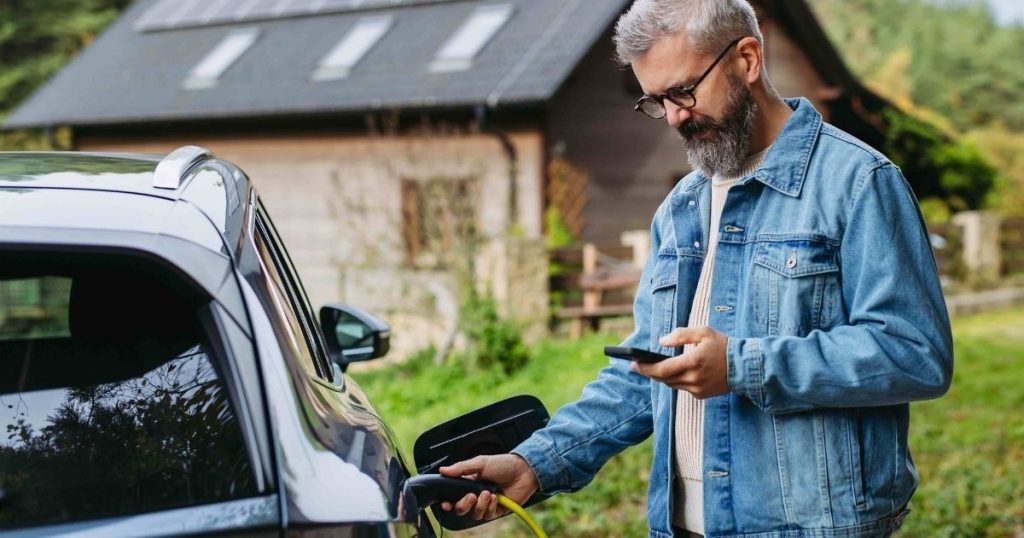
Words by Bella Zanin (Knowledge Exchange Associate)
The Climate Change Committee’s (CCC) Progress in reducing emissions – 2025 report to Parliament reveals that the UK is making progress on climate action, but the scale and pace of change are still lagging behind what is required. Drawing on CAST’s research on ‘sticky issues’, we discuss where the UK is heading, what’s missing, and why meaningful public engagement is more urgent than ever.
What are the report’s main findings?
The Climate Change Committee’s (CCC) recently published Progress in reducing emissions – 2025 report to Parliament paints a cautiously optimistic picture of the UK’s progress in tackling climate change. Emissions continue to fall (a 50% reduction since 1990) and climate policies are improving. Notably, we are successfully decarbonising our electricity supply by shifting from fossil fuel generation to renewables. Our Net Zero 2050 target remains “deliverable and affordable”.
However, as the report makes clear, significant challenges remain – particularly in sectors where behaviour change is critical and public support is less certain. At CAST, we call these ‘sticky issues’ and they include heating, transport, diet, and material consumption.
So, what does the CCC report say about these difficult areas?
Heating: Progress, but not fast enough
There’s been a welcome uptick in the installation of heat pumps, with a 56% increase in 2024, largely driven by increased support from government schemes. The UK is now seeing a near-doubling of emissions savings from heat pumps every two years. However, despite this, only around 1% of UK homes use heat pumps – far below European averages – and industrial energy use remains heavily reliant on fossil fuels.
The CCC highlights the need for the Government’s forthcoming Warm Homes Plan and Industrial Strategy to provide clarity around the UK’s long-term approach to decarbonising heat. Priority actions include reducing the cost of electricity relative to gas (to encourage uptake of electric heating) and providing financial and structural support for households to install heat pumps. There is also a need to upskill installers and ensure new homes are built with low-carbon heating.
Encouragingly, the CCC acknowledges the need for systemic interventions such as policies, incentives and regulations that make it easier for households and businesses to switch to low-carbon heating. CAST research shows that these are vital in encouraging sustainable behaviour change. The Government should also be aware that as UK summertimes heat up, cooling demand will rise, bringing new energy challenges.
Transport: Electric cars are charging ahead, but what about flying?
The UK is making real progress on surface transport. Nearly 20% of new cars sold in the UK are electric, with the nation’s electric vehicle (EV) fleet having doubled in two years. Installations of public EV charging points are rising and the cost gap with petrol cars is narrowing. Emissions from surface transport have fallen for the second year running, partly thanks to the Government’s commitment to phase out new petrol and diesel cars from 2030.
Still, the transition must go beyond private vehicles. While the CCC recommends increasing support for public transport, the report lacks a clear call to reduce overall car use. Improving sustainable alternatives like walking, cycling, trains and buses is critical to decarbonisation, alongside switching to electric cars and vans.
Meanwhile, aviation is heading in the wrong direction. Emissions from flying rose 9% in 2024, meaning they have returned to pre-pandemic levels and are now higher than emissions from the electricity supply sector. This threatens to undermine progress in other areas. Though sustainable aviation fuel (SAF) use has tripled since 2023, it remains at just 2.1% of total jet fuel. As the CCC stresses, behaviour change to manage demand will also be required. For some, flying has become associated with freedom and status, so public engagement will be essential in the coming years if we are to shift travel norms.
Diet: Quiet progress, but policy still lags
Diet receives less attention in the report, but there are signs of progress towards a more sustainable food system. UK meat consumption is falling, along with livestock numbers. And the Government has, for the first time, acknowledged the need to support shifts towards lower-carbon diets.
Still, policy is playing catch-up, with farmers facing mixed support to adopt more sustainable practices. Major policy developments – including the Land Use Framework for England, the National Food Strategy, and the Farming Roadmap – are on the horizon. These offer the Government an ideal opportunity to provide clarity around how farmers and consumers will be supported to contribute to a more sustainable food system.
Material consumption: The elephant in the room
Despite growing emissions from imported goods, the CCC report largely sidesteps the issue of material consumption. There is some discussion of packaging, waste management and waste reduction, but little recognition of the need to reduce overall consumption levels. Like flying, consumption has become a status symbol, so effective public engagement will be needed to shift habits and norms.
CAST affiliate and University of Bath researcher, Dr Sam Hampton, highlights the pitfalls associated with increasing consumption: “As the government continues to prioritise economic growth, we must consider what kind of growth we are pursuing. Growth delivered through high-carbon sectors may offer short-term benefits but ultimately causes long-term environmental and social harm. Instead, we should focus on sustainable, zero-carbon growth that enhances people’s wellbeing and supports nature recovery.”
CAST affiliate and University of Bath researcher, Dr Sam Hampton, highlights the pitfalls associated with increasing consumption:

“As the government continues to prioritise economic growth, we must consider what kind of growth we are pursuing. Growth delivered through high-carbon sectors may offer short-term benefits but ultimately causes long-term environmental and social harm. Instead, we should focus on sustainable, zero-carbon growth that enhances people’s wellbeing and supports nature recovery.”
Conclusion: We need people-centred climate solutions
The CCC’s Progress in reducing emissions – 2025 report to Parliament confirms that Net Zero is within reach, but only if we tackle ‘sticky issues’ head-on. CAST welcomes the CCC’s focus on systemic upstream interventions – such as infrastructure, technology, regulation, financial support, and information – that make low-carbon behaviours more affordable, more convenient and more normal.
We remind the Government that meaningful, effective and sustained public engagement is essential in order to reduce emissions from heating, transport, diet and consumption to safe levels. The UK’s upcoming Public Participation Strategy on climate change is the perfect opportunity for the Government to demonstrate how they will ensure individuals, communities and businesses feel included in the sustainable transition and supported to make sustainable choices.
Additionally, as CAST researcher Dr Sam Hampton, points out, leading by example is a critical part of getting people on board with climate action: “Government and political leadership must go further by visibly demonstrating that individual behaviours matter. When leaders adopt low-carbon choices—such as switching to electric vehicles, installing heat pumps, or using public transport—they send a powerful message that encourages the public to follow suit and helps shift social norms.”
Reducing UK emissions and tackling climate change requires real shifts in how we live, and real support to help people get there. As the Government continues to develop climate policies and strategies, we urge them to consider hearts and habits as much as technology.
Read the CCC’s Progress in reducing emissions – 2025 report to Parliament for more information. To learn more about our research findings on social transformations and ‘sticky issues’, read our CAST key messages report: ‘Catalysts of Change: People at the Heart of Climate Transformation. Key messages from five years of social science research on climate change’.
Follow us on Bluesky and LinkedIn and subscribe to our newsletter for future updates from the CAST team.
